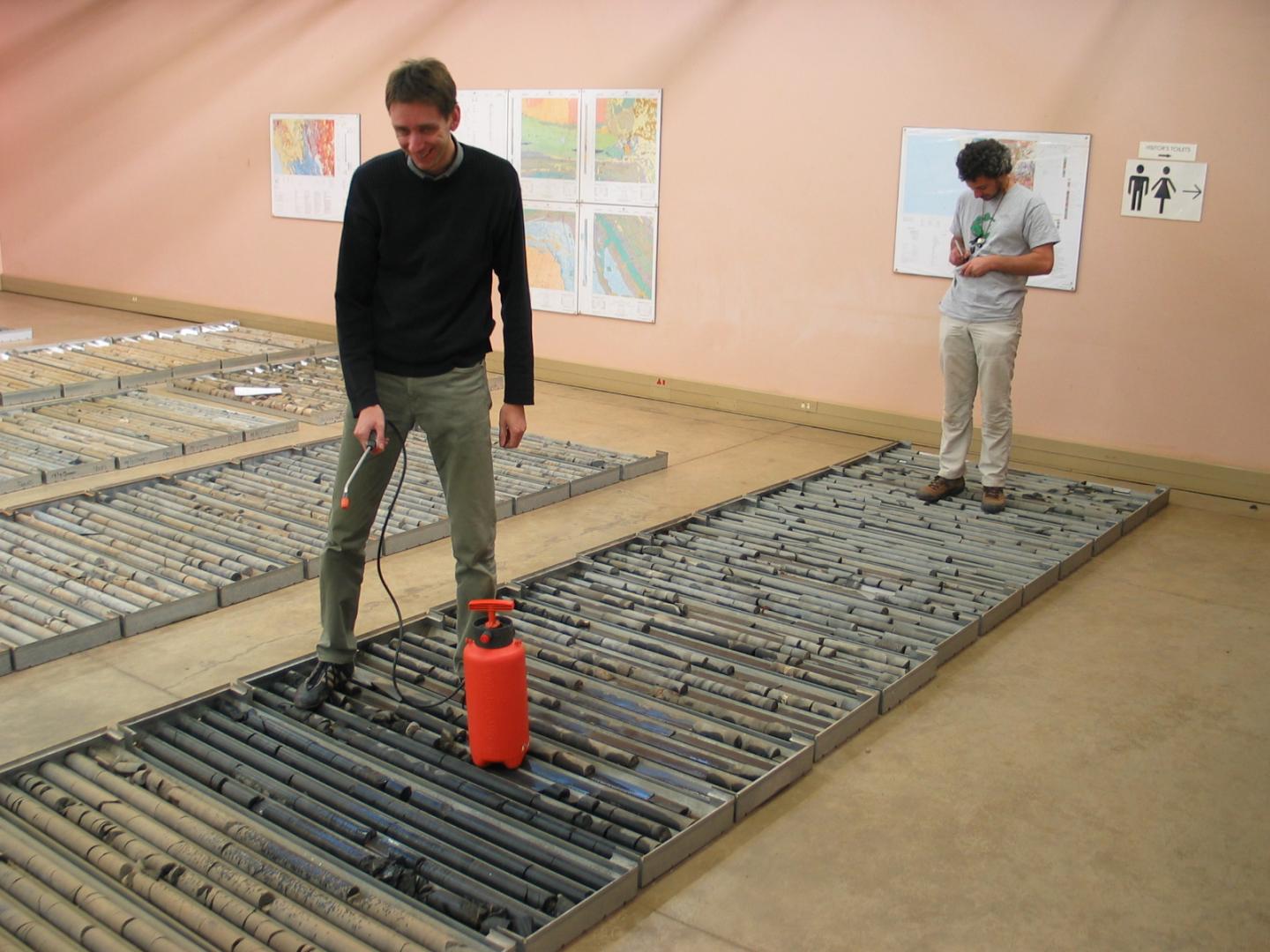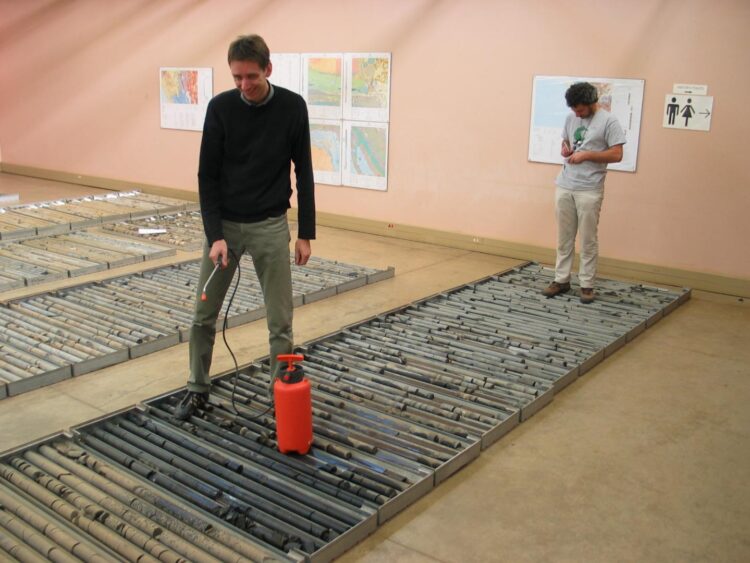Permanent oxygenation occurred much later than previously thought

Credit: Andrey Bekker/UCR
New research shows the permanent rise of oxygen in our atmosphere, which set the stage for life as we know it, happened 100 million years later than previously thought.
A significant rise in oxygen occurred about 2.43 billion years ago, marking the start of the Great Oxidation Episode — a pivotal moment in Earth’s history.
An international research team including a UC Riverside scientist analyzed rocks from South Africa formed during this event. Findings, published this week in the journal Nature, include the discovery that oxygen fluctuated dramatically after its early appearance until it became a permanent constituent of the atmosphere much later.
These fluctuations reinforce a direct link between atmospheric oxygen and concentrations of greenhouse gases such as methane, helping to explain some of the most extreme climate changes in the planet’s past.
During the same period, ancient Earth experienced four glaciations — periods when the whole planet was covered with ice and snow for millions of years. According to UC Riverside geologist Andrey Bekker, changes in atmospheric oxygen levels began and ended these events.
Scientists have often wondered how the planet could have emerged from the periods in which ice and snow covered everything, including the oceans. According to Bekker, increases in atmospheric oxygen levels resulted in low concentrations of greenhouse gases, such as methane and carbon dioxide. This ushered in global glaciations by maintaining surface conditions below the water-freezing temperature.
Volcanoes also continued to erupt on the frozen planet, building required high levels of carbon dioxide in the atmosphere to exit from climatic catastrophe by warming the planet and melting the snow and ice.
“Before this work, we all wondered why the fourth glacial event happened if oxygen was already a steady component in the atmosphere,” Becker said. “We found it was not steady. The permanent rise of oxygen actually occurred after the fourth, final glaciation in the Paleoproterozoc Era, and not before it, and this solves what had previously been a major puzzle in our understanding.”
The Great Oxidation Episode ushered in a 1.5 billion-year period of subsequent environmental stability, which lasted until a second major transitional period, marked by rising atmospheric oxygen and similar climatic changes at the end of the Precambrian time.
“We thought once oxygen increased it wouldn’t ever return back to lower levels,” Bekker said. “Now we have learned it fluctuated to very low levels and this could have dramatic implications in terms of understanding extinction events and the evolution of life.”
Open questions include the reasons for these multiple fluctuations, and whether complex life could have evolved and then died out again in response to them, said Simon Poulton, a biogeochemist at Leeds University who led the research.
“We cannot begin to understand the causes and consequences of atmospheric oxygenation, the most significant control on Earth’s habitability, if we do not know when permanent atmospheric oxygenation actually occurred,” he said. “Now at last we have that piece of the puzzle.”
###
Media Contact
Jules Bernstein
[email protected]
Original Source
https:/
Related Journal Article
http://dx.





